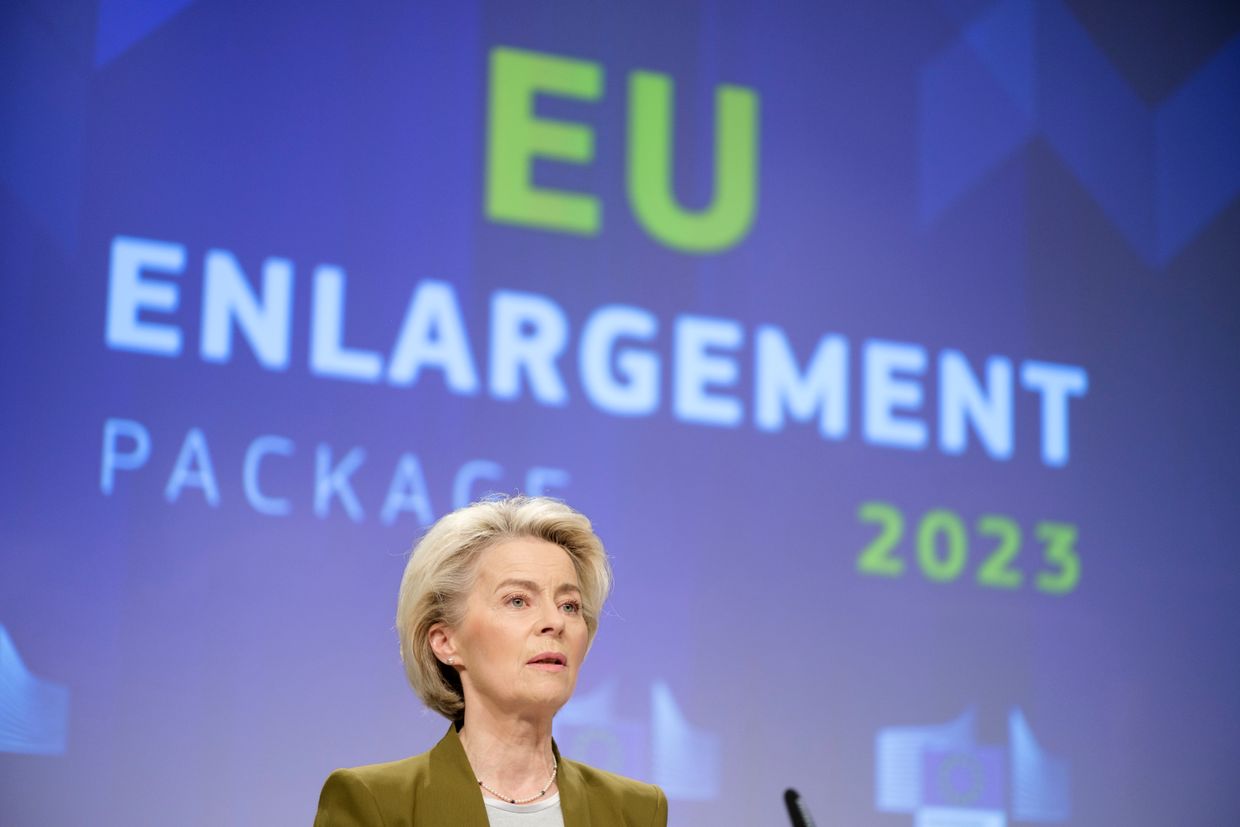Von der Leyen praises Ukraine's recent reforms on path toward EU

European Commission President Ursula von der Leyen acknowledged on Dec. 13 Ukraine's efforts on the path toward EU membership, praising Kyiv's most recent reforms.
The statement comes only a day before the start of the two-day European Council summit, which is expected to address the launch of Ukraine's accession talks.
"Our enlargement report from last month showed clear progress on all steps that we had identified," von der Leyen said in the European Parliament.
After being granted candidacy status last year, Ukraine was presented with seven criteria it needs to complete to join the Union.
"We identified four reforms to fully complete all steps. And in this month between the enlargement report and now, Ukraine has continued to work on all of them."
As the head of the EU's executive arm pointed out, the Ukrainian parliament recently approved two anti-corruption laws, specifically on the staff of the National Anti-Corruption Bureau (NABU) and assets declaration.
The Ukrainian parliament approved last week a staff increase of the NABU, one of the country's chief anti-corruption agencies, from 700 to 1,000.
The country also recently reopened the assets declaration registry, requiring public officials to declare their property and assets to the public.
Von der Leyen further acknowledged the recent changes to Ukraine's national minorities law, which has become a point of dispute between Kyiv and Budapest.
Hungary claimed that Ukraine's 2017 language law amendments, which require at least 70% of education above fifth grade to be conducted in Ukrainian, are discriminatory against the Hungarian minority.
Kyiv has said that it does not intend to crack down on its minorities, only to ensure that every Ukrainian citizen has sufficient knowledge of Ukraine's official language.
Ukraine has made two updates to the law based on recommendations of the Venice Commission, an advisory body of the Council of Europe.
"This law will allow greater use of minority languages in schools, in books, and in public events. Actually, national minority groups have already reacted positively to this law," von der Leyen said.
The Hungarian community in Ukraine recently appealed to Hungarian Prime Minister Viktor Orban to support the launch of Ukraine's accession talks, pointing out that the recent changes to the law "significantly reflect the interests of national minorities and enjoy our full support."
"If effectively implemented, these actions can fulfill three of our four outstanding recommendations," von der Leyen said.
To address the final recommendation, the Ukrainian government has also proposed a new law on lobbying to curb the power of oligarchs.
Ukraine was granted a candidate status along with Moldova in June last year. The European Commission recommended the launch of the accession talks in its November assessment.
The result of the upcoming talks remains uncertain as Hungary threatens to block the negotiations. Austria also voiced opposition to an "accelerated procedure" for Ukraine and Moldova's accession.













